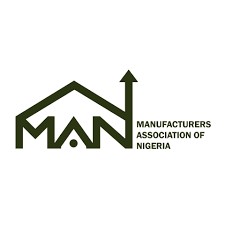The Manufacturers Association of Nigeria (MAN) has raised alarm over the escalating regulatory pressures and infrastructural challenges that are stifling the growth of the manufacturing sector in Lagos and across the nation. During the 57th Annual General Meeting (AGM) of the Ikeja branch, industry leaders voiced their concerns, calling for urgent government intervention to create a more favorable business environment that supports the sector’s sustainability and growth.
In his address at the AGM, Robert Ugbaja, Chairman of MAN’s Ikeja branch, highlighted the increasing burden that stringent regulations are placing on manufacturers. He pointed out that the cumulative impact of these regulations is not only raising the cost of doing business but also threatening the viability of many manufacturing operations. According to Ugbaja, the regulatory environment has become overly restrictive, leading to increased financial strain on manufacturers, many of whom are already grappling with the challenges of a difficult economic landscape.
Infrastructure Deficiencies Undermining Competitiveness
Beyond the regulatory challenges, Ugbaja also brought attention to the dire state of infrastructure in industrial areas, particularly in Lagos. He emphasized that poor infrastructure, including unreliable power supply, inadequate road networks, and inefficient logistics systems, is severely hampering the productivity and competitiveness of Nigerian manufacturers. These deficiencies, he noted, are making it increasingly difficult for local industries to compete both domestically and internationally.
The AGM, themed “Improving Productivity in Nigeria’s Manufacturing Sector: Monetary/Fiscal Policy, Infrastructure, and Competitiveness,” served as a platform for stakeholders to discuss the critical issues facing the sector and to propose solutions. Ugbaja stressed that addressing these infrastructure gaps is essential for enhancing the efficiency of manufacturing operations and ensuring that the sector can contribute effectively to Nigeria’s economic development.
Call for Government Support and Policy Reforms
MAN’s leadership is urging the government to take decisive action to alleviate the regulatory and infrastructural burdens that are crippling the manufacturing sector. They are advocating for policy reforms that would streamline regulations, reduce bureaucratic red tape, and provide manufacturers with the support they need to thrive. This includes creating a more predictable and stable regulatory environment, improving access to finance, and ensuring that fiscal and monetary policies are aligned to support industrial growth.
Ugbaja also called for increased government investment in critical infrastructure projects that would benefit industrial areas, particularly in Lagos. He emphasized that such investments are not just necessary for the survival of the manufacturing sector, but also for the broader economic health of the nation. By improving infrastructure, the government can help reduce operational costs for manufacturers, boost productivity, and enhance the competitiveness of Nigerian products in global markets.
A Sector at a Crossroads
The concerns raised at the AGM underscore the precarious position of Nigeria’s manufacturing sector, which has long been recognized as a key driver of economic growth and job creation. However, the sector’s potential is being undermined by the combined impact of regulatory pressures and infrastructure deficiencies. As the manufacturing community continues to grapple with these challenges, there is a growing sense of urgency for the government to act. In conclusion, the Manufacturers Association of Nigeria is calling for a comprehensive approach to address the issues facing the sector. By focusing on policy reforms, improving infrastructure, and creating a more supportive business environment, the government can help unlock the full potential of Nigeria’s manufacturing industry. The outcome of these efforts will be crucial in determining whether the sector can overcome its current challenges and continue to play a vital role in the country’s economic future.















